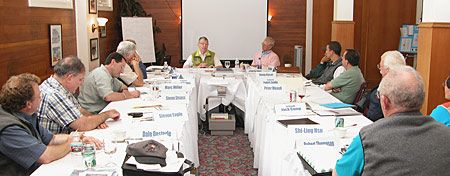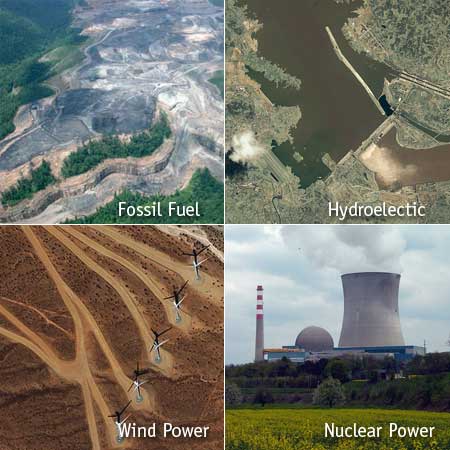Purpose
- Investigates the causes of economic imbalances.
- Investigates causes tending to destroy or impair the free-market system.
- Explores and develops market-based solutions.
Summary
FREE’s programs are the only ones for the federal judiciary dealing explicitly with the economic, scientific, and policy implications of environmental issues.
September 10–15 The Environmental Consequences of Energy Use: Policies for Progress
October 8–13 From Terrorism to Tornados: Mitigating Disruptions to Civil Liberties and the Economy
Program agendas are posted on our web site.

Foundation for Research on Economics and the Environment (FREE) Seminar
Description
The fundamental objective of FREE’s programs is to apply economic analysis to improve environmental quality. Over the past 16 years dozens of federal judges have written us, telling us how even a small amount of economic understanding has immense analytic leverage when considering environmental policy. If one wants to effect social change, it is important to understand how the world works. FREE helps provide this.
Purpose
FREE address all purposes of the Foundation, as listed below.
To investigate the causes of economic imbalances:
In an environmental context, economic imbalances often occur when property rights are poorly defined (or absent) or when negative externalities are not accounted for. Common-pool resources (i.e., resources that have no owner and limiting access to them is not practical) are an example.
This situation creates the famous "tragedy of the commons." Nineteenth century whaling, which drove several species to the brink of extinction, is a classic case. Some common-pool resource problems can be addressed by assigning property rights, for example tradable quotas for ocean fisheries. But other common-pool resources, like the atmosphere, require a regulatory approach.
 FREE’s programs explore technically complex issues that carry heavy emotional baggage, such as the environmental impacts of various energy sources. We use basic concepts from the fields of economics (micro and public choice theory), comparative social institutions, and science and risk analysis to foster clear thinking and ultimately to explore and promote constructive policy reforms.
FREE’s programs explore technically complex issues that carry heavy emotional baggage, such as the environmental impacts of various energy sources. We use basic concepts from the fields of economics (micro and public choice theory), comparative social institutions, and science and risk analysis to foster clear thinking and ultimately to explore and promote constructive policy reforms.
Ecosystems services (e.g., forests and soils that naturally filter water from a melting winter snow pack) are another example. Since ecosystem services don’t compare well with other economic services, they are often given little weight in policy decisions. This is because ecosystem services are a public good. Public goods are not traded in commercial markets and no one can be excluded from using them.
To investigate the effect of the monetary system in fostering a sustainable economy.
Economic progress is a prerequisite for improving environmental quality. And environmental quality is linked to economic sustainability.
Our programs explain these linkages. Consider U.S. air quality. The EPA reports that between 1976 and 1997 ozone levels ~~ the major contributor to urban smog ~~ decreased 30.9 percent. Sulfur dioxide ~~ the primary component of acid rain ~~ decreased 66.7 percent; nitrogen oxides decreased 37.9 percent; carbon monoxide decreased 66.4 percent; and lead decreased a dramatic 97.3 percent. During that same period, U.S. GDP increased 158 percent, energy consumption 45 percent, and vehicle miles traveled 143 percent.
The U.S. Department of Interior noted, “Cleaner air is a direct consequence of better technologies and the enormous and sustained investments that only a rich nation could afford.”
To investigate causes tending to destroy or impair the free-market system;
Our programs address critics of globalization and free trade who would have us believe third world environmental and human rights abuses are due to "globalization". They want to arrest the spread of the market economy and modern technology. Their angst over real and contrived problems of globalization would be lessened if they asked one question: "Compared to what?"
Global capitalism does bring social stress. However, a technologically robust, market-based economy raises living standards ever higher, faster, and more inclusively than any other system. Developing countries make as much progress in thirty years as industrialized nations did in a century. Critics who ignore these benefits and blindly fight globalization hurt those who most need economic progress.
To explore and develop market-based solutions
Professor Robert Stavins, Faculty Chair in Economics and the Environment at Harvard’s Kennedy School of Government observed:
The causes of environmental problems are fundamentally economic, and the consequences have important economic dimensions. That’s why anyone who wishes to play an effective role in the environmental policy process will benefit from having a real understanding of environmental economics.
We agree. Our programs explain the importance of secure property rights and economic freedom to the efficient and sensitive use of environmental resources.
Every society faces the important challenge of meeting its desires without compromising the ability of future generations to meet theirs. Since we care about the well-being of future generations, the question is, How do we best allocate scarce resources over the long term?
Take nonrenewable commodities, e.g., copper and coal. Here the key question is determining the optimal rate of depletion, i.e., the rate at which we draw down irreplaceable stocks. The market functions well here. Rising prices signal increasing scarcity and provide incentives for conservation and the search for substitutes (e.g., silicon fiber-optic lines replace copper phone wires).
We also explain the limitation of markets, for example regarding amenity resources. Endangered species and wilderness areas are examples. There are no substitutes for grizzly, polar, or panda bears. This category presents many challenges, but also offers great potential for policy innovations.
Scope
All of our programs share the following objectives. We strive to:
describe how incentives and voluntary cooperation protect and enhance civil society while fostering economic prosperity
show how the application of economics, risk analysis, and science to public policy and the law provides insights that advance the public interest
explain the importance of secure property rights and economic freedom to the efficient and sensitive use of America’s resources
Information Dissemination
Responsibility for the management and dissemination of information is shared by FREE’s founder and Chairman John A. Baden, Ph.D., Executive Vice President Pete Geddes, and Publications and Program Coordinator Kristyn Birrell.
Dr. Baden is the author or editor of ten books, numerous articles on ethics and natural resources, and a column in the Bozeman Daily Chronicle and Headwaters News.
Pete Geddes writes regular opinion editorials for the Bozeman Daily Chronicle. These writings have also appeared in the Journal of Forestry, Frontiers in Ecology and the Environment, The Wall Street Journal, the Seattle Times, and on the Internet at the National Center for Policy Analysis’ Policy Digest, Tech Central Station, the Commons, and A Better World.
Kristyn Birrell produces FREE’s annual report and quarterly newsletter, FREE Perspectives, and writes and edits op-eds for the Bozeman Daily Chronicle and other outlets.
Project Link http://www.free-eco.org/programs_judges.php
Amount Approved$30,000.00
on 6/13/2006
(Check sent: 7/6/2006)